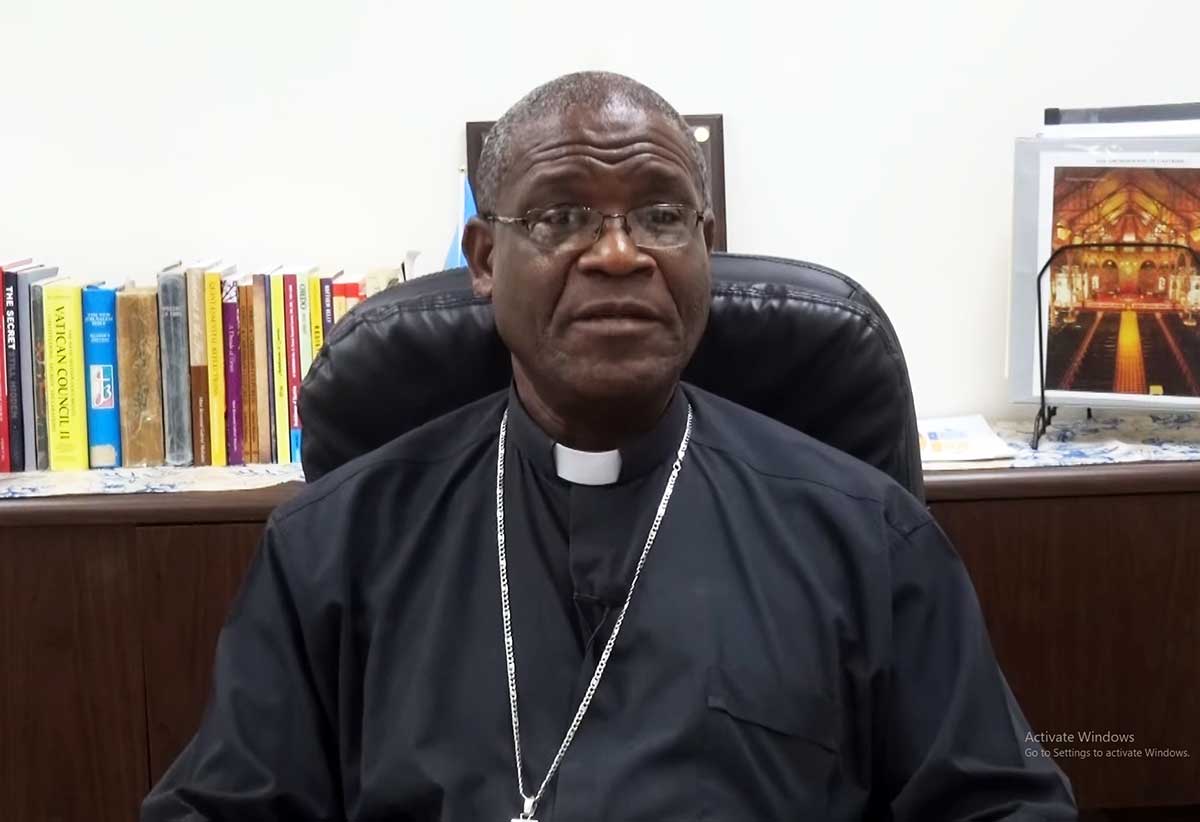Copyright thevoiceslu

The human conscience is one of the most precious gifts given to us. It is the inner voice that guides us to distinguish right from wrong, to act justly, and to pursue the good. Yet conscience does not develop in isolation. It is shaped, nurtured, and informed by the environments in which we live and the influences we encounter. Among these, the family, the Church, the school, and the wider society stand out as the principal «architects» of conscience formation. Each of these plays a unique and indispensable role in ensuring that human beings grow into morally responsible, compassionate, and principled individuals. 1. Parents and the Home: The First School of Conscience The home is often called the «domestic church», and rightly so. It is the first environment where a child learns values, discipline, and love. Parents are the primary and most influential architects of conscience formation. Long before a child learns abstract moral reasoning, they absorb lessons through observation and imitation. When parents show honesty, respect, patience, and kindness in their daily lives, children learn that these virtues are worthy and necessary. Conversely, when children witness dishonesty, aggression, or irresponsibility, they may come to normalize such behaviors. The family, therefore, has a profound responsibility to model truth, justice, and care for others. Practical habits—such as teaching children to pray, to say «thank you», to share with siblings, or to admit when they are wrong—are small but powerful ways of cultivating a conscience. In many ways, the home is where the seeds of moral awareness are planted, nurtured, and made ready to grow. Parents who take this responsibility seriously prepare their children not just for success in life, but for goodness in life. 2. The Church: Scripture and Moral Teaching While the family is the first school of virtue, the Church plays an irreplaceable role in forming and strengthening the conscience. From earliest times, the people of God have turned to the Word of God and the moral guidance of the Church to discern the path of righteousness. Through Sacred Scripture, believers encounter the living God and His commandments. The Ten Commandments, the Sermon on the Mount, and the parables of Jesus are not simply religious stories; they are moral compasses that shape the conscience. They remind the faithful of God’s eternal law written on every human heart, and they invite us to respond in freedom and love. The Church also teaches through her moral tradition, which helps the faithful interpret Scripture in the light of contemporary life. Catechesis, the sacraments, preaching, and pastoral care all work together to nurture the conscience of believers. For example, the Sacrament of Reconciliation is not just about forgiveness of sins but also about the ongoing formation of conscience, helping individuals to reflect on their actions and to grow in virtue. Moreover, the Church forms conscience by reminding us that it is not merely about personal choice but about responsibility before God and neighbor. A well-formed conscience is never self-serving; it is oriented toward truth, justice, and love of others. 3. The School: Intellectual and Moral Development Schools are not just places for acquiring knowledge and professional skills; they are vital spaces for moral formation. Teachers, by their example and guidance, influence how students learn to think critically about right and wrong. In a good educational environment, students are not only taught facts but are encouraged to develop virtues such as integrity, fairness, respect for others, and responsibility. Disciplines like history, literature, and civic education expand a student’s moral imagination, helping them understand the consequences of human choices across time and culture. Religious and moral education classes, where offered, reinforce the moral framework learned at home and in the Church. But even in secular settings, schools play a crucial role in teaching respect for diversity, the value of cooperation, and the importance of truth. Beyond the curriculum, the way a school community operates can either build or weaken conscience. A culture of fairness, discipline, and mutual respect fosters moral growth, while a culture of bullying, favoritism, or dishonesty undermines it. Teachers and administrators thus bear a sacred responsibility as co-architects of conscience, shaping the next generation not just to succeed academically, but to live ethically. 4. Society: The Broader Context of Conscience No individual or institution lives in isolation. Society as a whole exerts a profound influence on conscience formation. Through laws, media, cultural norms, and public life, society communicates values—both positive and negative—that deeply affect how people understand morality. On one hand, just laws and good governance reinforce moral conscience. When a society upholds human rights, protects the vulnerable, and promotes justice, it strengthens the moral fabric of its people. On the other hand, when corruption, injustice, or violence are tolerated, society risks dulling the conscience of its members, making wrongdoing seem normal or inevitable. The media and digital culture, in particular, play an enormous role today. Young people especially are constantly exposed to messages about success, pleasure, relationships, and truth. These messages can either inspire noble ideals or mislead with shallow values. For this reason, society must be attentive to the kind of culture it fosters. Families, schools, and the Church cannot be left alone in this task; the broader community must also take responsibility for promoting values that uplift the dignity of the human person. Conscience as the Final Arbiter While parents, the Church, schools, and society all serve as architects of conscience formation, ultimately the conscience itself has the final say. It is the inner sanctuary where the human person stands alone with God, discerning what is right and freely choosing to follow it. A well-formed conscience does not blindly follow external pressures but listens to truth, guided by reason and faith. When conscience is ignored or deformed—whether by neglect, misinformation, or selfishness—danger arises. History shows how the lack of a sound conscience can lead to terrible injustices, from personal betrayals to collective tragedies. Therefore, conscience formation is not a one-time process but a lifelong journey. It requires openness to learning, humility to be corrected, and courage to act rightly even when it is difficult. The formation of conscience is one of the most important tasks in human life. Parents lay the foundation in the home, the Church nourishes it with the Word and moral teaching, schools refine it through education and example, and society reinforces—or undermines—it through culture and law. Together, these architects shape individuals who can discern truth, act with justice, and live in freedom. Yet in the end, each person must listen to the voice within and choose to follow the good. A well-formed conscience remains one of humanity’s greatest safeguards—protecting dignity, promoting justice, and ensuring that our actions reflect not only who we are but who we are called to be. Respectfully, Most Rev. Gabriel Malzaire Archbishop of Castries.



